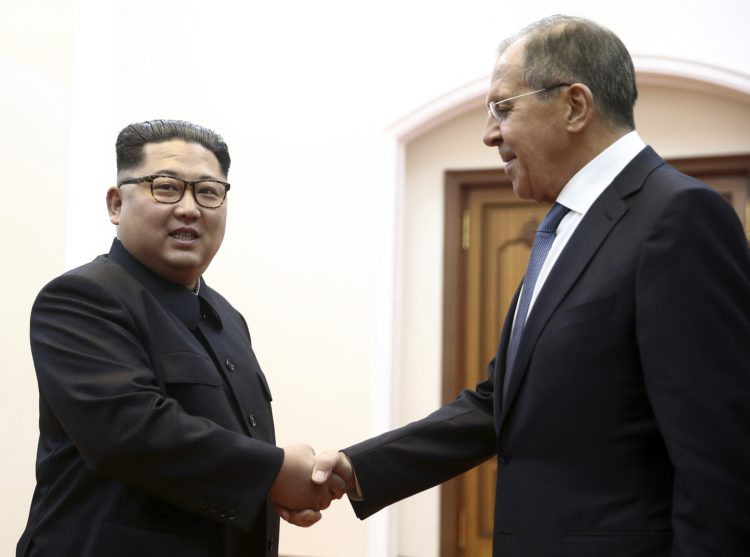Tensions with North Korea are considerably lower than they were a year ago, but thus far little has actually been accomplished toward America’s ultimate goal of the complete denuclearization of the Korean peninsula. North Korea’s Supreme Leader, Kim Jong Un, has been engaged with an on again-off again dialogue with President Donald Trump for months, but large questions continue to loom about Kim’s willingness to relinquish the nuclear weapons he’s fought so hard to develop.
In the media, these periods of letter writing and symbolic gestures can sometimes seem like inaction. President Trump, who has plenty of critics on both domestic and international stages, has repeatedly made statements indicating that progress is moving swiftly, but the reality of geopolitics is rarely so dynamic. However, assuming nothing is being done between talks would be incorrect — America’s primary diplomatic weapons are still chipping away at North Korean resolve in the form of sanctions.
Sanctions levied by the United States, and further though allies and the United Nations, have crippled North Korea’s already struggling economy, which is likely the reason Kim Jong Un has recently made the transition both internally and externally toward talks of cooperation, economic empowerment and even the potential for denuclearization. The North Korean people are starving, as indicated by soldiers near the border with South Korea that have been defecting in record numbers in recent months. Troops stationed in high profile areas like the DMZ dividing the two Koreas are historically given the best provisions in order to display an image of strength. So when one soldier made it into South Korea with little more than an infestation of parasites in his stomach, that likely means none of North Korea’s troops are receiving the proper nutrition or access to necessary hygiene facilities. If that’s the state of his military, so often touted in national propaganda, the general populous could be in an even more dire situation.
The pressure placed on North Korea through sanctions has proven highly effective, but its ability to force Kim to the negotiating table with full force is hindered by other nations that have been working to circumvent sanctions put in place by the United Nations, in violation of international law. A number of vessels have been intercepted or identified as having helped smuggle goods into or out of North Korea in recent months, for instance. Now, as United Nations investigators prepared to provide the Security Council with a report on those violations, they may have been bullied by Russian officials to amend their findings to remove mention of Russia’s covert support of Kim Jong Un’s regime.
“Russia can’t be allowed to edit and obstruct independent U.N. reports on North Korea sanctions just because they don’t like what they say. Period,” U.S. Ambassador to the U.N. Nikki Haley said in a statement over the weekend. “The full implementation of U.N. Security Council resolutions remains mandatory for all member states – including Russia.”
The report is said to further indicate that North Korea has continued to work on further development of their nuclear weapons program, despite statements indicating otherwise. Russia, it would seem, also hoped to prevent that from being presented to the Security Council.
Thus far, Russian officials have declined to comment on these accusations.
Already have an account? Sign In
Two ways to continue to read this article.
Subscribe
$1.99
every 4 weeks
- Unlimited access to all articles
- Support independent journalism
- Ad-free reading experience
Subscribe Now
Recurring Monthly. Cancel Anytime.











COMMENTS